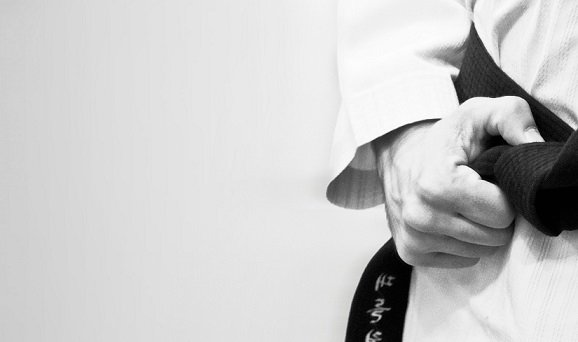Answered by Shaykh Yūsuf Badāt
Question:
It is with great pleasure and honour that I have been given this task of bridging a gap between two different perspectives in our community, that are based on the same foundation; diversity and acceptance of individual differences without compromising one’s values and belief system.
On behalf of Energy Martial Arts Academy, I am writing to you in respect to a couple of their policies and the Islamic perspective on these particular points. As a student of this academy for about 15 years now, I can attest to the efforts of the grandmasters and instructors toward increasing their understanding of various traditions and religious practices, implementation of their basic policies, and creating balance between the two. Bearing respectful boundaries, the academy has managed to maintain stellar credentials and a level of honour that is rare in this day and age. However, two of the more basic practices of the academy have raised questions amongst the Muslim students, with respect to Islamic ruling. Being a student of EMAA, allowances have been granted for us to maintain a comfort level as to learn and progress toward our journey in becoming a blackbelt. Many of us have progressed and graduated. Others have furthered a career as instructors. Assuming a position of leadership, how can the academy address these issues without offending respective instructors while maintaining the code of ethics and level of respect the academy has built over the years? It would be greatly appreciated if you would clarify these issues in question, as well as, shed some light on how to handle them.
- The ritual of bowing out of respect: What is the Islamic teaching with respect to bowing to the academy and each other out of respect and not for any religious connotations?
- Chinese traditional bow of respect: Alternatives have been given to the families who displayed strong inhibitions against the bowing, one of which is standing at the back during the ceremony, bending at the hips slightly, and cupping one fist with the other hand. Again, what would be the Islamic ruling for this and would this be a more acceptable practice?
- Shaking of hands between student- instructor- parent: Students shake hands before class, before and after working with each other, again to emphasize the mutual respect and honour between each other and the instructor. As a student, it is easy to voice the aspect that one is not comfortable in partaking in this practice, but how can we address this when one assumes leadership? What would be the Islamic perspective on this and how should the grandmaster address this during, without demeaning the values of the instructor in training?
Answer:
Jazāk Allāh Khayr/ Thank you for your questions. Your work to stay active and promote healthy activity, teamwork and community building with creativity is amazing, Mā shā Allāh.
To answer your queries, kindly note the following,
In the religion of Islam, bowing (rukū) and prostration (sujūd) are actions that are solely conducted for the Almighty. These are the highest forms of a physical display of respect, honour and worship. Hence this is restricted for the Almighty. That being said, I would recommend any alternative to the bowing.
If one can speak to the academy management and or instructors, explaining the religious position, I am sure they would understand. One can show respect with gifts, cards, and or positive sentiments on a consistent basis. An alternative in the place of bowing, one may simply nod or do a gesture of respect slightly leaning forward. This or any similar alternatives that do not resemble bowing (rukū) and prostration (sujūd) would be acceptable. (Refer to Al-Mawsū‘ah Al-Fiqhīyyah)
As for shaking hands, this is Islamicaly acceptable amongst the same gender. Practicing Muslims, however, will feel uncomfortable if the hand shakes are with the opposite gender, since this is something contrary to the teaching of Islamic protocols unless the person is aged (Refer to Bukhārī). In such a scenario, one can do an alternative greeting, such as placing the right hand on one’s heart and smiling. These are modern and acceptable ways of greeting and showing respect, with no body contact.
It might be worthy to note that there are some contemporary Islamic scholars who suggest that if the hand shake entails no provocation of sexual temptation and desire, then it could be permissible. Obviously, this again should be left up to the person, according to their comfort and perspective regarding the view and practice of religion.
In any case, it is always best to discuss, have dialogue and clarify matters, especially in a non-muslim setting, so there is no misunderstanding or offence.
And Allāh Knows Best




